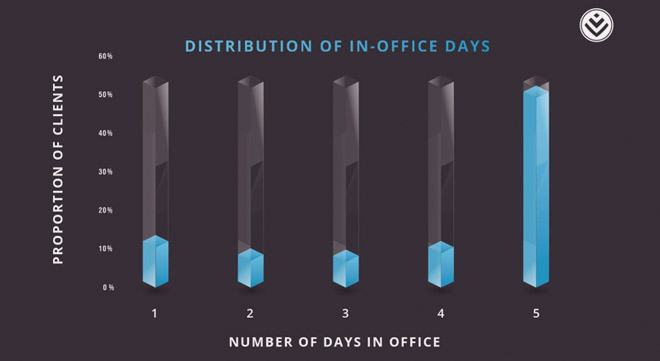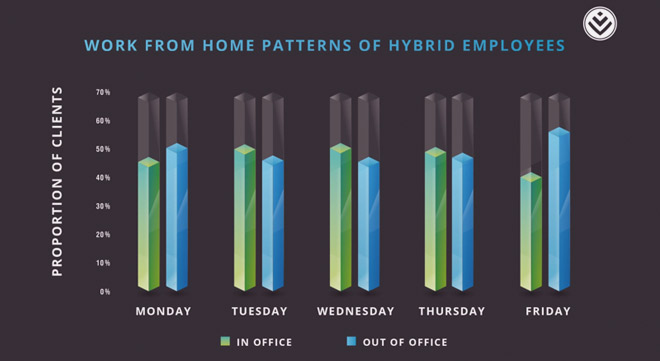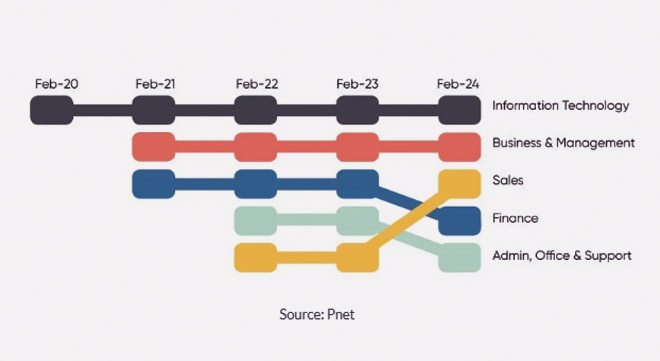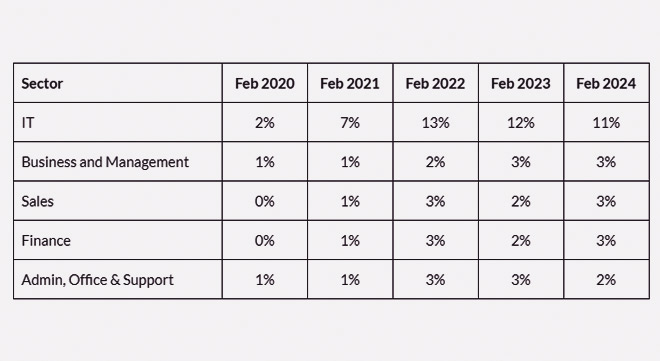While companies around the world are pushing back against remote work arrangements, it seems many South African companies are opting for a hybrid approach, blending remote and office work for the time being.
According to Discovery Insure data released earlier this week, 23% of its clients who began working from home during the Covid-19 pandemic are still not back in the office full-time.
The report analyses the driving trends of Vitality Drive programme members.
Robert Attwell, Discovery Insure’s chief executive, says the report found that traffic volumes have increased during the work week on certain days, but overall, volumes are not where they were in 2019.
“The data shows that while many South Africans are making their way back to the office, most aren’t working in the building for the traditional 9-to-5, five days a week,” says Attwell.
Discovery Insure’s analysis of driving patterns from June to November 2023 found that, of those who drove to the office, 53% did so five days a week. Overall, 75% of clients who work from offices are now commuting at least three times a week.
The data also shows that 14% of Vitality Drive members now go to the office only once a week.
When they’re working from the office, South Africans spend the same hours there as they used to before the pandemic from Mondays to Thursdays, but they leave early on Fridays.
“The data shows something that we already knew, too: South Africans like to knock off early at the end of the week, as they spend 20 minutes less in the office on Fridays,” adds Attwell.

The data further shows that offices are likely at their fullest on a Wednesday, because nearly 80% of workers (full-time and hybrid) go into the office on that day. In contrast, Friday is the least popular day for working from the office.
“So, if you’re hybrid working a few days a week, and if you can choose which days you go into the office, make one of those in-office days a Friday, and if it’s a Wednesday, leave the house earlier to avoid traffic and congestion,” says Attwell.

Offer vs demand
According to online recruitment platform Pnet’s latest Job Market Trends Report, before the initial lockdown in 2020, only about 1.2% of job opportunities in South Africa allowed for remote work. Fast forward four years, and now roughly 4% of job opportunities provide remote working options.
As to where employers weigh in on work-from-home models, KPMG’s Southern African 2023 CEO Outlook states that 72% of Southern African CEOs are in favour of returning to in-person or on-site work within the next three years.
In contrast, a survey conducted by OfferZen found that although more companies have shifted back to office-based work policies between 2023 and 2024, they still represent the minority, with office-based policies increasing from 7.9% to 9.6% among surveyed employees, while remote work remains at 40.8%.
The same survey also found that remote work options are now a top priority for many job seekers, with consultancy PwC’s survey showing that at least a third of younger employees (Gen Z) would not consider a position without a remote work option. Additionally, OfferZen’s survey found that more than half of respondents would consider leaving their jobs if they were forced to return to the office.
It has been speculated that employees are resisting the push to return to the office because they are saving money and time on commuting, particularly considering the financial constraints they are facing.
An analysis by BusinessTech, using data from Discovery Bank, found that adopting a work-from-home model could save South Africans up to R2 900 a month if the current cost of petrol and the average distance travelled by car every month is considered. According to Discovery Bank’s data, Discovery Insure clients drive, on average, about 1 690km every month (commuting at least three days a week).
Industries that lead the work-from-home drive
Interestingly, some job sectors offer more remote work opportunities than others.
An article on BusinessTech reports that jobs in information technology (IT) are the primary beneficiary of remote work in South Africa, as indicated by Pnet’s Job Market Trends Report.
Before the pandemic, the IT sector led in remote work opportunities, with about 2% of jobs offering this option. By 2024, this figure has increased to about 11%, maintaining its position at the forefront. Sectors such as business and management, finance, sales, and administration, office and support have also witnessed a rise in remote work opportunities, although fewer compared to IT.
Among job roles, software development offers the most remote work opportunities, with 12% of vacancies advertised as remote or hybrid. Following closely are systems/network administration (IT) and middle/department management (business and management).


Atwell says that, based on the Discovery Insure data, the hybrid workplace models are likely to stick around for some time if the current rate of change continues.
“It remains to be seen whether South Africans will eventually return to 2019 full-time in-office levels,” he says.




